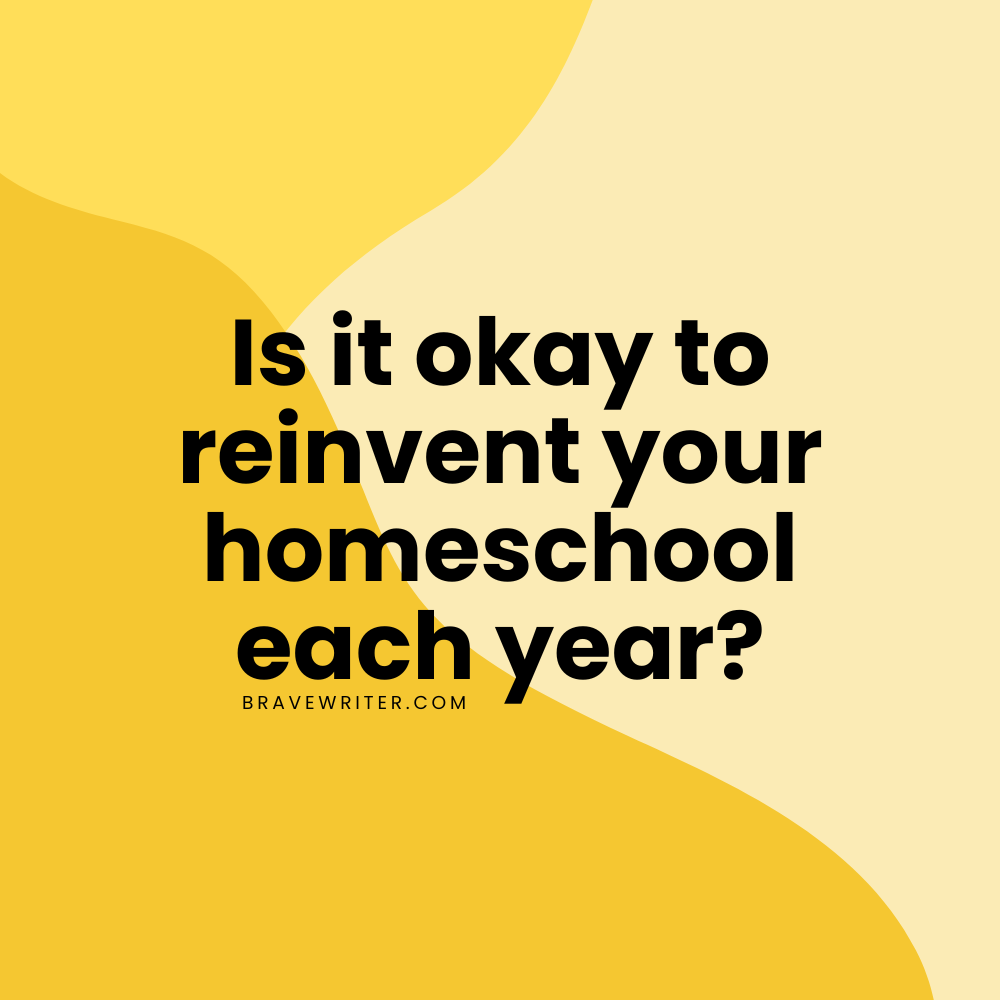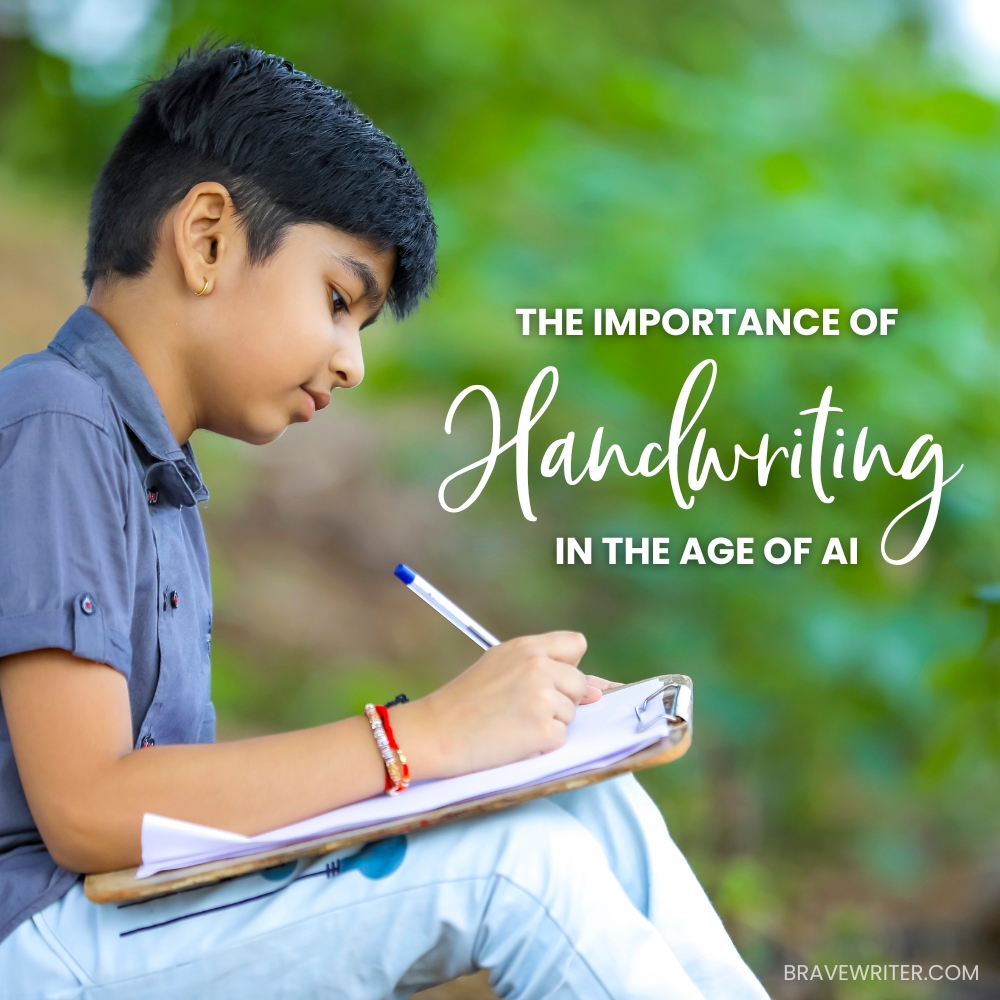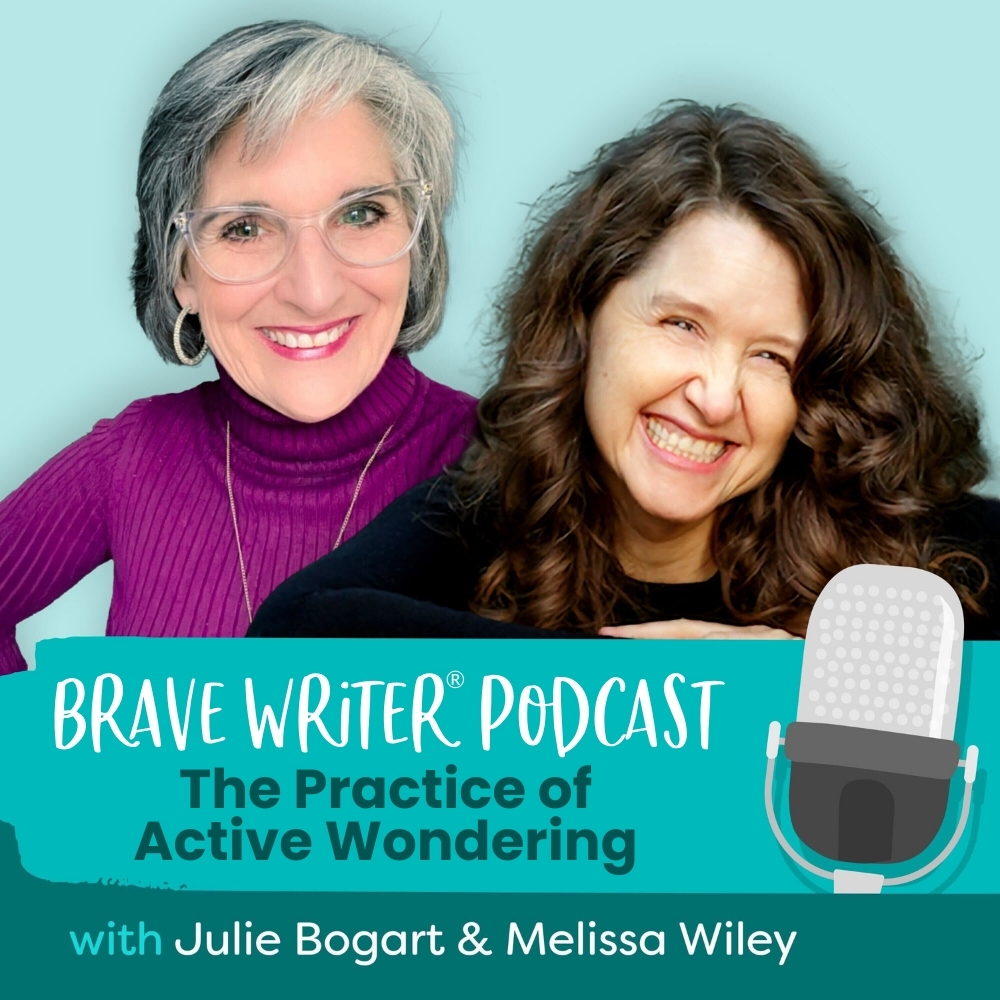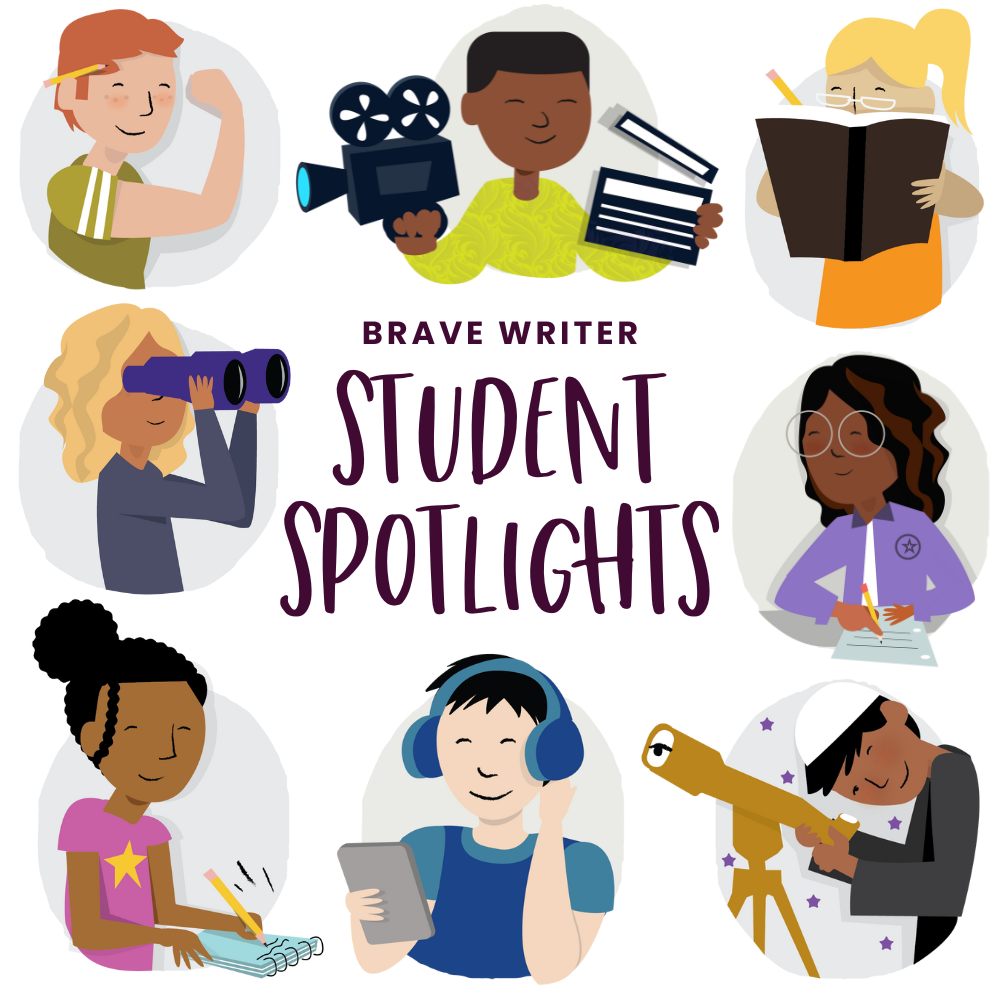
Is it okay to abandon a curriculum that worked, just because “fill in the blank”?
Maybe we:
Are tired or bored or nervous.
Have a kid who doesn’t do it the way we did it with the last four, just as we got the hang of it. (Grrr.)
Hear about someone else’s bright idea and doubt everything we’ve ever done, even while our best friend tells us we are perfect as we are. (Sure, Michelle.)
Worry that we’ll lose our friends if we change gears and try something new. (Please, don’t kick me out of forest school because I like the indoors now.)
Know this: It’s always OKAY to reinvent how you home educate.
Lean into it.
Add chocolate if needed.


























